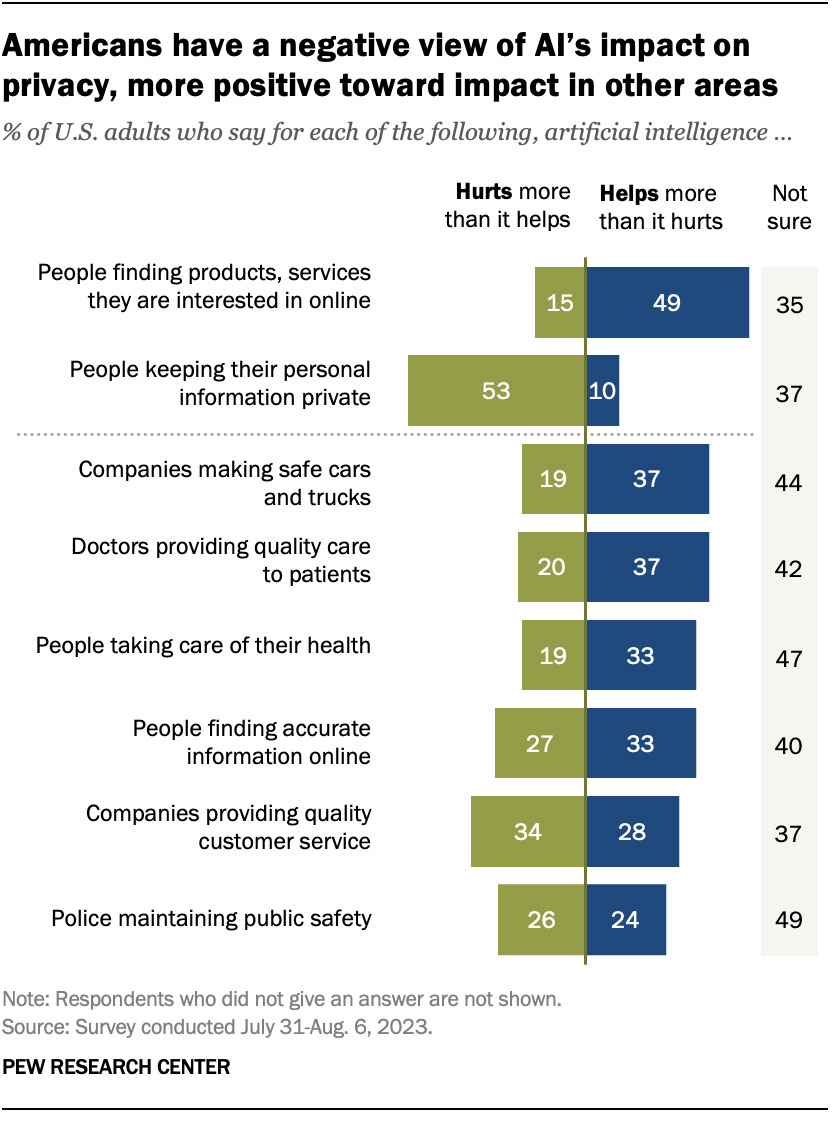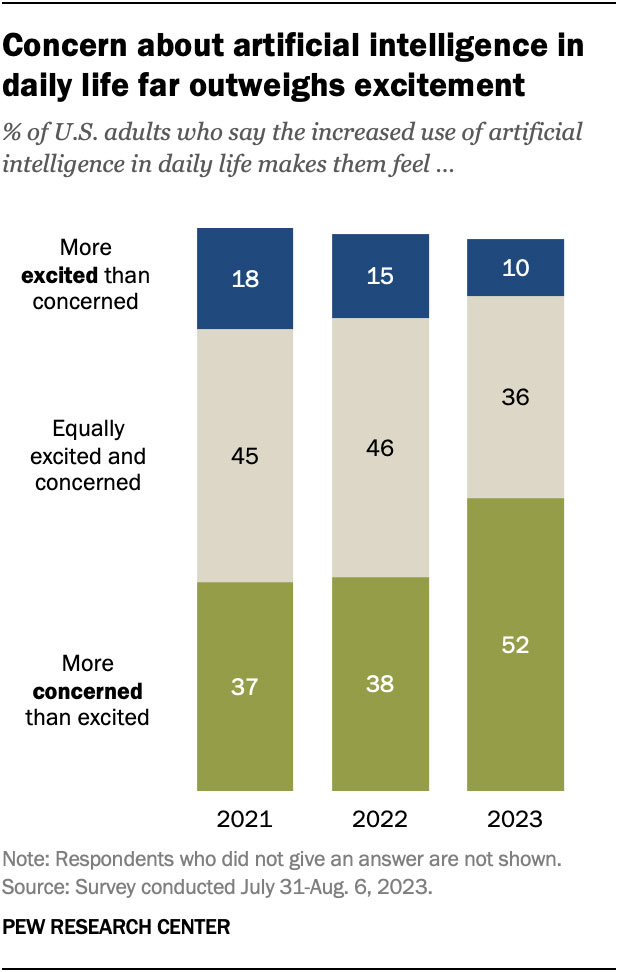In an attitude survey of 11,201 U.S. adults, the Pew Research Center found that more than half of Americans (52%) feel more concerned than excited about the increased use of artificial intelligence. That’s 14 points higher than in December 2022, when AI concerned only 38% of surveyed Americans.
Castro maintained that solons can address concerns raised by AI without targeting laws at the technology. “Passing a federal data protection law would address most privacy concerns,” he said.
“The two surveys seem to offer contradictory findings,” said Greg Sterling, co-founder of Near Media, a news, commentary, and analysis website.
“But that will be hard to enforce,” he admitted.
“There’s been a seven-point increase in the share of the public who say they’ve heard a lot about AI, so public awareness is growing,” he added.

The media has also contributed to stoking concern about AI, maintained Rob Enderle, president and principal analyst at the Enderle Group, an advisory services firm in Bend, Ore.
Meanwhile, in an experience study of 5,057 adults, Pew found that five out of eight Americans (63%) who have heard of ChatGPT believe generative AI chatbots will have a minor impact (36%) or no impact all (27%) on their jobs.
“Nobody was asking consumers what they thought about large language models a few years ago,” he said. “When the survey asked consumers about AI in 2021, they were thinking about very different technologies.”
Privacy Threat
“The underlying fear is that AI will make profiling and surveillance more powerful and invasive than they already are,” he continued. “Technologies like facial recognition are part of this.”
Artificial intelligence concerns more Americans than it excites, although few think the technology will have a significant impact on their jobs, according to a pair of studies released Monday by a Washington, D.C. think tank.
“I think the concerns partly stem from a lack of understanding or a lack of control,” he said. “AI has also been routinely portrayed in fiction and the movies as a malevolent influence.”
Bad Press
“All kinds of decision-making is being turned over to AI — hiring, health care, insurance, loans, housing,” he continued. “In such sensitive areas, we must ensure that humans remain in control, and people have recourse where they’ve been unfairly affected by AI determinations.”
On the other hand, 53% of Americans believe AI does more to hurt than help people keep their personal information private.
“Government needs to rapidly develop a core competence with generative AI,” Enderle added, “or they are likely to do more harm than good. Misunderstandings and ignorance could put the nation significantly behind China with regard to the effective use of this tool.”
“It is the nature of news coverage to accentuate aspects of a product that create controversy,” he told TechNewsWorld. “You make money from attention, and articles that talk about risks pull better than articles that talk about benefits.”
“Even the White House has been trumpeting this message about AI risks from its meetings with AI companies to its AI Bill of Rights,” he said. “It is also easy to imagine how things might go wrong. Indeed, many screenwriters and novelists have made careers out of imagining AI disasters.”
While it’s reasonable for Americans to have concerns about the future, he continued, their concerns are not necessarily based on hard facts. “Typically, people’s concerns about technology dissipate as they become more familiar with it,” he said.
Familiarity Breeds Concern
“A 14-point movement in the span of eight months is a notable shift in public opinion,” Pew’s Associate Director of Research Alec Tyson told TechNewsWorld.
“AI in the context of privacy appears as a kind of supercharged extension of the ‘surveillance capitalism’ that has driven online profiling and personal data collection for the past 20 years,” Sterling said.
“The reason these concerns are likely increasing is that what people consider AI has continued to change over the years,” he maintained. “So even though the term itself is old, what people consider to be AI is new.
“Regulation must support individual privacy and protect against bias,” Sterling said.
Daniel Castro, director of the Center for Data Innovation in Washington, D.C., a think tank studying the intersection of data, technology, and public policy, agreed.

However, that doesn’t seem to be the case with AI. The rise in concern over the technology has taken place alongside growing public awareness about it, Pew noted. Nearly nine in 10 adults have either heard a lot (33%) or a little (56%) about AI.
Castro acknowledged that Pew’s findings indicate concern about AI is increasing, not decreasing, over time but attributes that trend to changes in the technology.
ADVERTISEMENT

